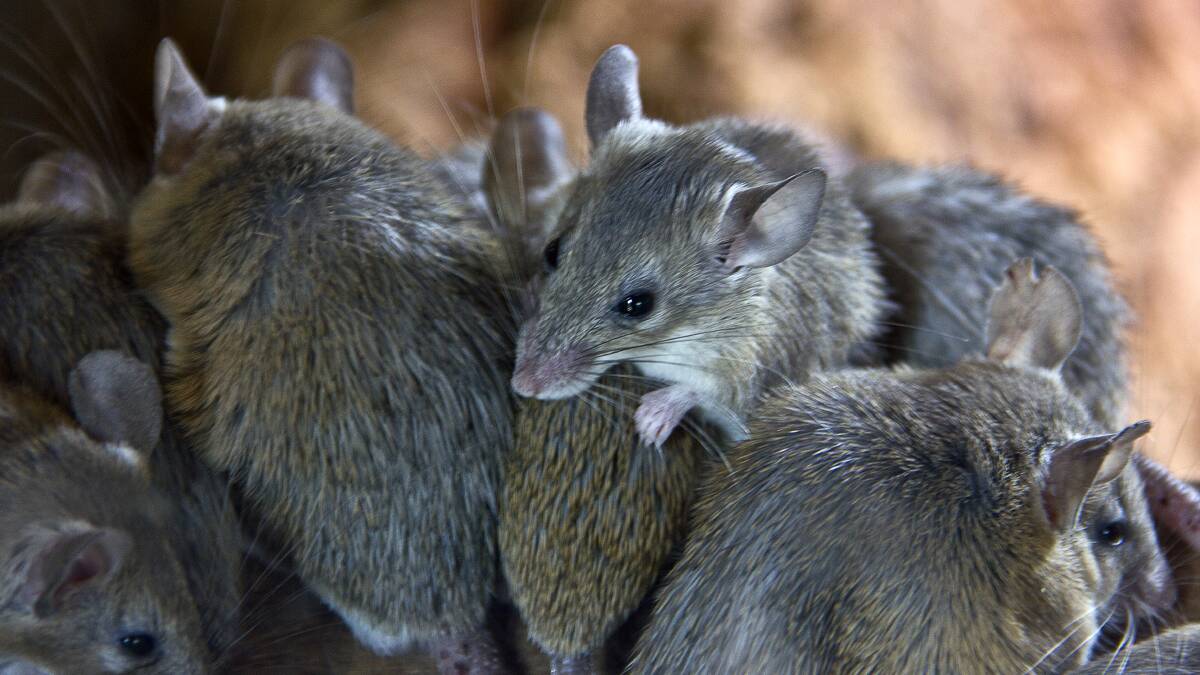
NSW Farmers called for a rebate to help cover the costs for the mouse plague and the government has delivered.
Subscribe now for unlimited access to all our agricultural news
across the nation
or signup to continue reading
First it was a $50 million support package in free baits and financial assistance rebates.
Today NSW Government has announced the $100 million primary producer zinc phosphide rebate scheme, which gives farmers a rebate of 50 per cent on zinc phosphide purchases, up to $10,000.
It is expected to be back dated to January 1 this year and to continue until December 31.
It comes after the NSW Farmers and Country Women's Association called on the government to implement a financial support package, providing up to $25,000 per farm business to subsidise 50 per cent of the cost of bait products.
In response to today's announcement, NSW Farmers' president James Jackson said: "the government have responded and have recognised the problem is here and now".
"It's close to what we have been asking for and this will help to nail it," Mr Jackson said.
"We hope this cold snap will quip the number to some degree but we have to make sure this problem doesn't go into the spring."
Mr Jackson said zinc phosphide was a "better poison" to use considering it was already registered for broad acre use.
"Zinc phosphide is a lot safer to use, it doesn't have the potential to contaminate the food supply chain."
He also commended the government on its $1.8 million three year genetic biocontrol research program, in which scientists will use targeted gene drives to interrupt the breeding cycle of mice.
The technology aims to pass on an increased proportion of males genes to reduce the number of females to keep populations at manageable levels.
"This is an important part of their announcement as this problem will be ongoing and we need more sophisticated tools than the ones we have now," Mr Jackson said.
Andrew Weidemann from Grain Producers Australia said: 'it was good news and something we have been working towards with NSW Farmers, the government and manufacturers".
"Finally the farm lobby sector has been heard and it's a credit to the government to support farmers and rural communities and help them in their time of need," Mr Weidemann said.
Mr Weidemann echoed Mr Jackson's sentiments saying zinc phosphide was a better product.
"Bromadiolone has the potential for secondary impact on the environment, it takes a lo of longer to kill the mice than zinc " he said.
"The work we have done in the past 10 years shows that zinc phosphide is the most affective and safest for the environment as a tool."
Deputy Premier John Barilaro said this new funding would provide financial relief, cash flow and confidence to place advance orders on zinc phosphide ahead of spring.
"When the mouse bait and treated grain programs were announced I said there would be more support to come and today I'm pleased to confirm we will extend the program to include primary producer rebates for zinc phosphide," Mr Barilaro said.
"Zinc phosphide is already a tax deductible expense for primary producers and while many are now seeing more promising business activity following the drought, I know the mice plague is stinging the hip pocket, which is why we are providing this rebate."
Agriculture Minister Adam Marshall said the government was working with manufacturers to help shore up supplies of zinc phosphide to prepared for a possible spring surge in the mouse population.
"We are working to ensure there will be an appropriate supply of zinc phosphide active ingredient by providing $5 million to assist with the costs of transporting it to Australia," Mr Marshall said.
"We will make sure zinc phosphide baits produced as part of this arrangement are earmarked for sale to NSW producers first, and we will continue to work to connect manufacturers with Commonwealth support such as the International Freight Assistance Mechanism."
The Department of Regional NSW and the Rural Assistance Authority will develop the zinc phosphide rebate framework, including how primary producers will be able to claim the rebate and the eligibility criteria.
Primary producers who live where they work are already able to claim rebates of up to $1000 for mouse bait, traps and cleaning products used to protect their homes.
Free grain treatment with bromadiolone for perimeter baiting is awaiting approval from the Australian Pesticides and Veterinary Medicines Authority


